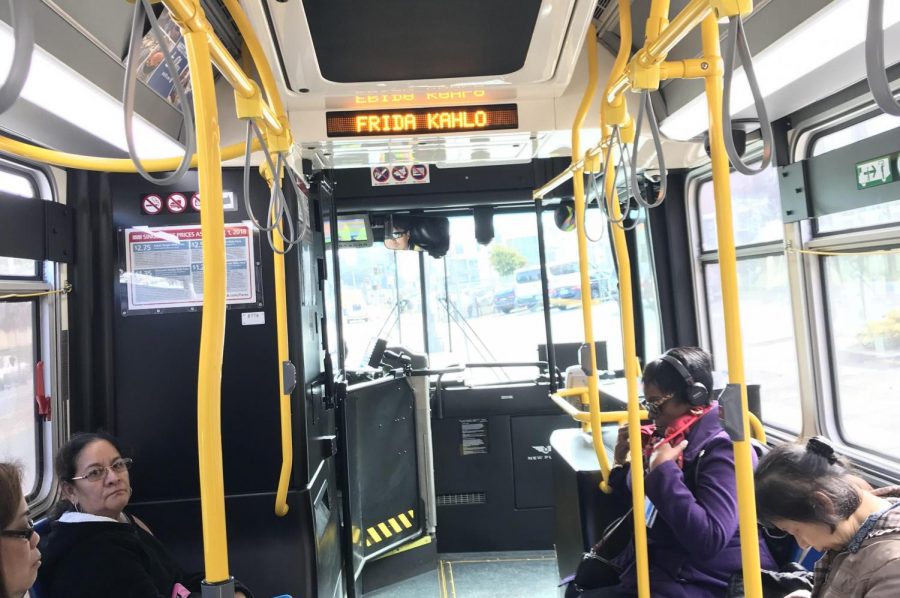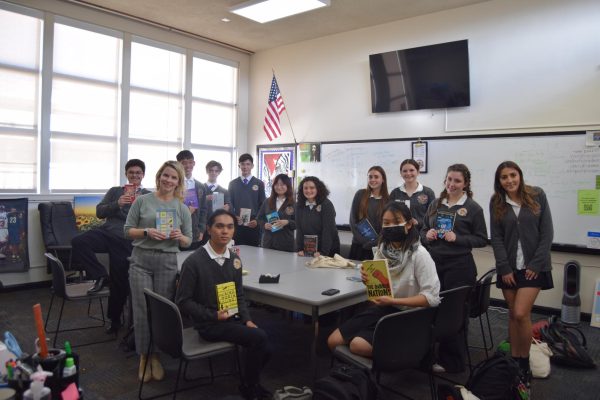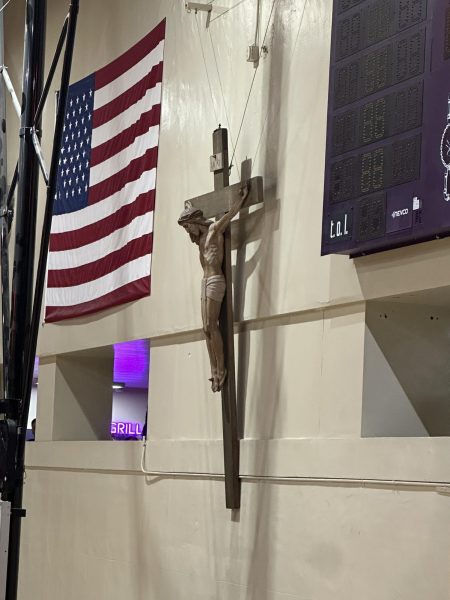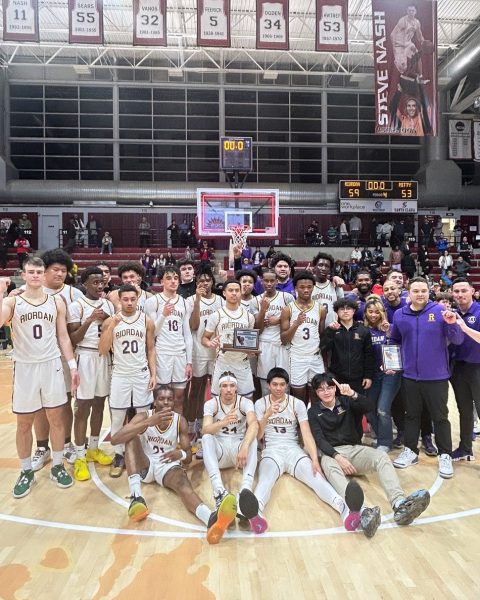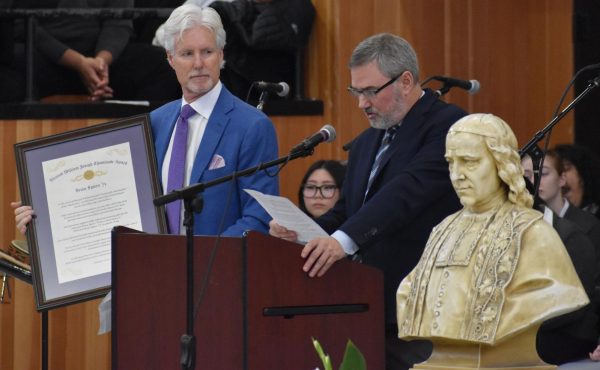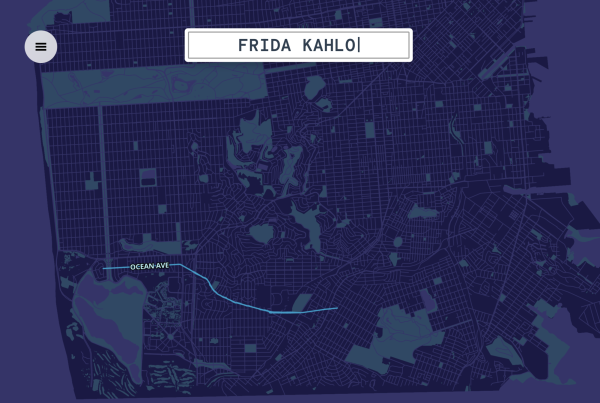Phelan Avenue to Frida Kahlo Way transition begins
MUNI bus 43 has already changed Phelan Avenue to Frida Kahlo Way.
November 6, 2018
After a vote by residents that lasted about two weeks, a vote by the Board of Supervisors, and a debate that still continues, Phelan Avenue will be renamed “Frida Kahlo Way.”
The community around Phelan Avenue was able to vote on fivedifferent names, and “Frida Kahlo Way” was the one chosen. The election turnout was very small, with only about 30 votes being cast.
Supervisor Norman Yee, who spearheaded the renaming effort, said the electronic vote count was “not as high as I would have liked,” according to the San Francisco Examiner.
At the meeting with the supervisors, President Andrew Currier spoke on behalf of the Riordan Community and the neighbors on Phelan, who did not want the change.
The effort to rename the street began at City College about three years ago, when student activists at City College researched former San Francisco mayor James Phelan, and discovered his racist past. Phelan campaigned for anti-immigrant and anti-Asian policies during his political career, and used a plethora of racist slogans. These students started to seriously look into the process of renaming a street, and their efforts have since been proven effective.
“I agree with the change 100 percent,” said Social Studies Department Chair and Cana house provincial Christopher Fern. “Historically, Phelan made anti-Asian and anti-immigrant comments. And while that was socially acceptable at the time, it is not something we want to associate ourselves with now.”
The future namesake of the street on which Archbishop Riordan resides, Frida Kahlo, was a Mexican artist who took inspiration from the Mexican indigenous culture.
“I would have preferred someone with a closer connection to San Francisco was chosen, but I do believe it is important for more women of color such as Frida Kahlo to be recognized,” Fern said.
Cabot Maloney ’21 held a similar position to Fern, saying, “On one hand it is appropriate to name the street after her becauseshe was an influential artist whoinspired many. But on the other hand,they’re naming it after a woman who didn’t contribute to San Francisco society in any way.”
The selection of Kahlo could also be seen as problematic, as she was an active communist sympathizer, a movement that killed more than 110 million people in the 20th century and propelled countless more into extreme poverty.
Many believe it is unjust to rename the street, as it is not actually named after Mayor James Duval Phelan, but his father, James Phelan Sr. The elder Phelan was an Irish immigrant who became wealthy as a banker and real estate investor during the Gold Rush of 1849, and isan important figure to the IrishAmerican community.
This summer, Riordan Principal Tim Reardon told The Squire, Camp Crusader’s newspaper, “It would have been really cool to have the street named after a Riordan man like Tyrone McGraw ’06 (who died last year) or Bob Dalton ’61 (an English teacher who recently retired.)
“I don’t really like changing street names, but I understand why they would want to change it,” said Spanish teacher Armando Castillo. “Nobody knows who James Phelan is, but Frida Kahlo is an internationally recognized artist.”
Phelan Avenue residents are upset that they will need to work through complicated paperwork and city processes now. The change will also be costly to the school, as they will need to change their postal address on all stationery and publicity materials to account for the name change. MUNI has already made the change from “Phelan” to “Frida Kahlo” on their buses.
As per public policy, there will be a five-year grace period where either “Phelan Avenue” or “Frida Kahlo Way” will be acceptable to use in their addresses. No official date has been set for when the street signs will be changed, but they must denote the old name under it for five years.
The issue of renaming streets and taking down monuments that may be deemed offensive is a heated national debate with a lot of nuance. Some people believe that society should not recognize people of the past who do not align with current values, while some believe that it is important to remember these people so that we do not repeat the same mistakes, while some others do not think we should judge people of the past through our moral lenses.
“You can’t judge the people of the past through our standards,” Castillo said. “We have evolved as a species since then.”
UPDATE:



